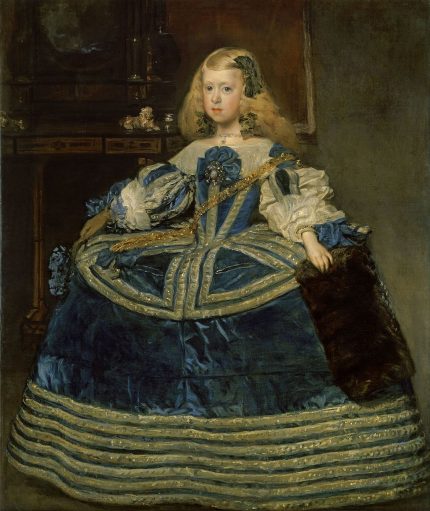Witty works for an empress open Newberry Consort season

The indefatigable Newberry Consort opened its 33rd season at its namesake library’s Ruggles Hall on Friday night. Their season has been dubbed “The Year of the Woman,” and rather than focus on actual musical contributions from early women composers, Newberry’s three programs present Renaissance and Baroque works written under the auspices of female patronage and influence. The Empress Margarita Teresa was the focus Friday night, which offered a cultivated and genuinely funny presentation of 17th century opera, with only minor instrumental lapses to its debit.
The first half was devoted to music of Holy Roman Emperor Leopold I, Margarita Teresa’s uncle whom she would marry at 15 in a typical instance of politically expedient Hapsburg incest. Leopold was an accomplished composer in a variety of genres. As the younger brother of Ferdinand IV he was never expected to rule, and so received a broader liberal education than did his heir sibling. When Ferdinand died and Leopold ascended to the imperial throne in 1657, he brought that cultural erudition with him.
Newberry opened with two sets of Leopold’s courtly dances, which are accomplished, aphoristically brief items. The comely terpsichorean miniatures received thoughtfully stylized treatment from the Newberry players, though violinist and Newberry co-director David Douglass’ leadership and intonation were insecure; second violinist Allison Monroe was more assertive and the technical standout among the group.
Leopold’s comic intermezzo Orfeo y Euridice of 1671 followed, a genuinely uproarious sendup of the famous myth. In Leopold’s version, it is unclear that the title lovers are actually that devoted to each other, with ambivalence about the relationship on both sides, which makes the characters of this farcical version somehow truer to reality than the mythical caricatures.
Salomé Sandoval ably projected the over-the-top melodrama of Euridice, her inviting soprano well suited to her character’s shapely lines. Oliver Camacho’s warm tenor was admirably deployed as Orfeo. His minimalist acting throughout underscored many comic moments, including when he begins an aria horribly off-key and needs to “tune” his voice, and when he encounters the dead Euridice and comments, “Even if you lie on sweet smelling flowers, death still smells bad.”
The trio of Fates comprised soprano and Newberry co-director Ellen Hargis, Allison Selby Cook, and Monroe, who put away her violin to take a singing role. Lead by Hargis, the trio made mellifluous contributions and added to the comic esprit, nowhere more so than in their comment to Orfeo that “there are enough musicians in hell already.” Baritone and frequent Newberry guest Eric Miranda made an excellent faux-chilling Pluto, whose negotiations with an Orfeo who isn’t entirely convinced he wants his wife back were another comic highlight.
Miranda, Camacho, Cook, Hargis, and Sandoval were the cast for the second half’s selections from Antonio Cesti’s Il Pomo d’Oro, which retells the myth of the beauty contest among the goddesses Juno, Pallas Athena and Venus, judged by the mortal prince Paris. The sprawling five-act work was written for the nuptial celebrations of Leopold and Margarita Teresa. Newberry’s excerpting did a fine job conveying the narrative in about 30 minutes, leaving one to wonder in what the rest of the opera consists.
The performance remained on the same high level as the first act. Miranda put across the mischief of his character Momo, the god of slander, who oversees the action in a Puckish vein. Cook’s Juno was sweet-voiced and aptly grandiose; Hargis’ Athena, fluent and imperious; and Sandoval expertly navigated Venus’ florid crowing about her contest victory. Camacho’s Paris was as good as his Orfeo. The consort accompaniment was subtle and attuned throughout, ongoing lapses from Douglass notwithstanding.
As at its 1666 premiere, Il Pomo d’Oro was preceded by an instrumental serenade of Hapsburg court composer Johann Heinrich Schmelzer, which received the same elevated treatment as the first half’s dances.
As always with Newberry programs, huge plaudits are due to musicologist, editor and graphic designer Shawn Keener, whose indispensable projections of supertitles intelligently adorned with relevant period art have been enormously enhancing Newberry’s efforts for years.
“The Empress: Margarita Teresa” repeats Saturday at International House in Hyde Park at 2 p.m., and Sunday at 3 p.m. at Northwestern’s Galvin Recital Hall in Evanston. https://newberryconsort.org/
Posted in Performances




